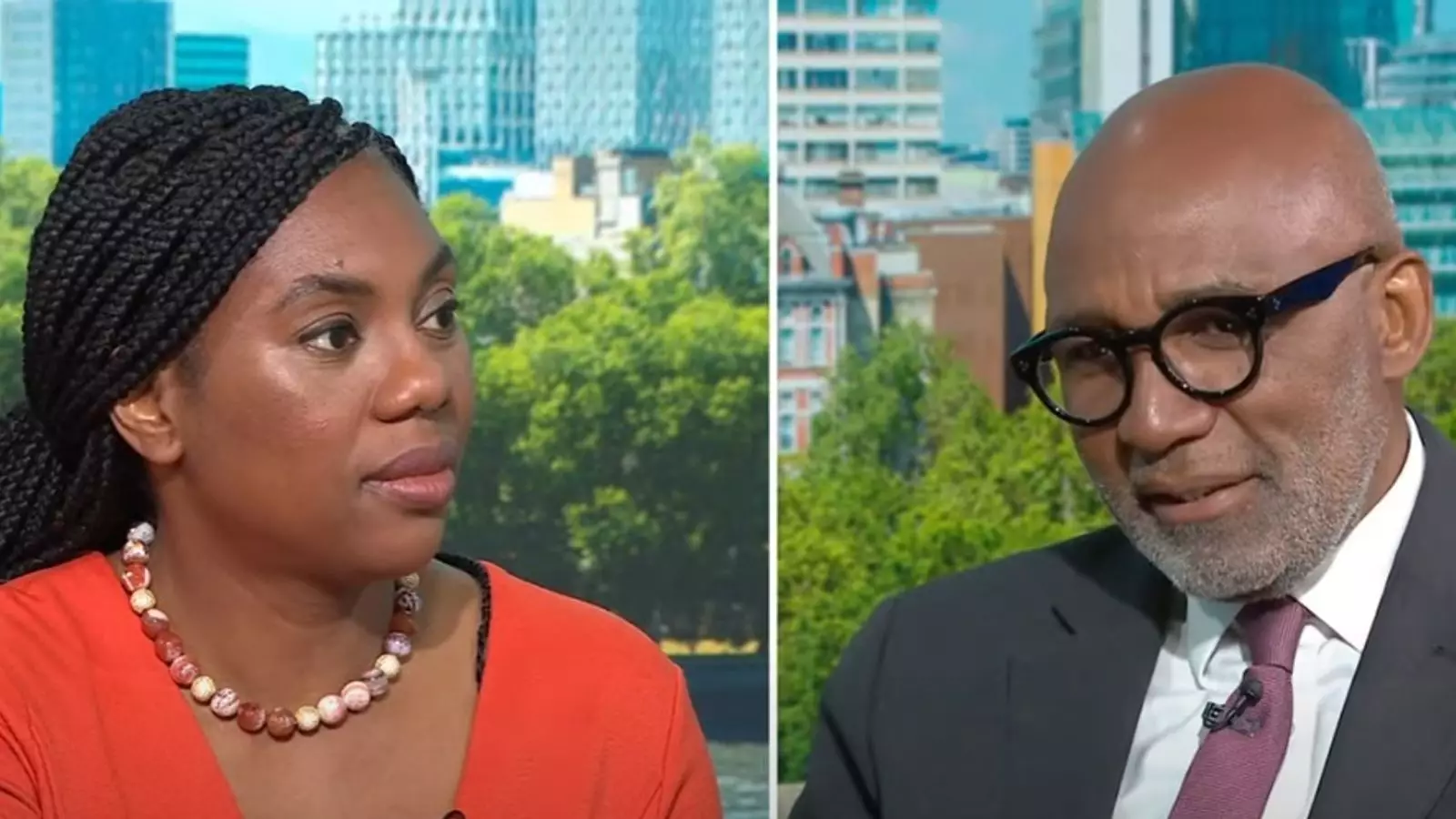In a political landscape that is ever-shifting and fraught with contradictions, Kemi Badenoch stands as a unique figure in the Conservative Party. Her recent remarks about potential local coalitions with Reform UK, while summarily dismissing a national pact with Nigel Farage’s party, reveal a calculating approach to the looming council elections. Badenoch is, undeniably, playing a high-stakes game—a mix of pragmatism and political realism that could either solidify her influence within the party or lead to disastrous consequences.
Badenoch’s insistence on local-level flexibility reflects an understanding that politics is deeply rooted in community dynamics. Acknowledging that some councils might find themselves without a clear majority requires a certain bravery and strategic foresight. However, one must also question whether this apparent pragmatism masks a crushing realization of the Conservative Party’s declining fortunes in once staunchly Tory strongholds. By stating that “you have to do what is right for your local area,” Badenoch cleverly sidesteps the more precarious implications of aligning with a party, such as Reform, that is shadowed by association with the increasingly polarizing figure of Farage.
The Ghosts of Leadership Past
It’s difficult to ignore the specter of Boris Johnson that looms over Badenoch’s statements. The last time these councils saw elections, Johnson buoyed his party with the euphoria generated from rapid COVID-19 vaccination rollouts, leading to a conservative stronghold. Today, however, the outlook is grim, with Badenoch virtually conceding that they could lose every single contested council. Such low expectations signal a leadership challenge that extends beyond mere electoral metrics; it reflects a deep-seated anxiety about the future identity of the Conservative Party itself.
Her criticism of “stitch-ups” is another telling phrase, encapsulating the internal distrust and fragmentation that the Tories currently grapple with. It raises questions about whether Badenoch genuinely believes that voters yearn for integrity or if she merely aims to deflect criticism while advancing her own ambitions. The specter of stitched deals will likely dog her during the elections, making it difficult for her to present a cohesive and credible Conservative vision. Her rhetoric may pivot between a contrived commitment to grassroots authenticity and a more calculated pursuit of power through expediency.
Denial and Dilemmas
Badenoch has drawn a firm line against any coalition with Farage at the national level, which raises questions about the true depth of her conviction. While the immediate stakes of local elections loom large, the long-term implications of any partnership with Reform cannot be overlooked. It is a paradox St. Augustine would relish: to love virtue and simultaneously engage with vice, all while espousing the nobility of one’s motivations. By advocating potential local collaborations while dismissing any national alignment, Badenoch is treading dangerously close to the hypocrisy that could alienate both traditional Conservative voters and moderates seeking a responsible right-leaning party.
Moreover, the responses from figures like Robert Jenrick and Ben Houchen illustrate the internal rifts within the Conservative Party. The whisperings of coalition options with Reform indicate a party trying to coalesce around an uncertain idea of a center-right identity. It exposes a vulnerability that could ultimately weaken the Conservatives as they attempt to navigate the treacherous waters of a national electorate that seems less forgiving than every before.
A Cautionary Political Prelude
As other national parties ramp up their campaigns amid this electoral uncertainty, one can’t help but feel that Badenoch is underutilizing the potential for constructive change within her own ranks. Instead of engaging in backdoor conversations about preserving her party’s legacy through possible alliances, why not prioritize presenting a fresh vision that speaks to contemporary voter concerns? Critically, the failure to solidify a distinct ideological stance will leave the Conservatives vulnerable to the ever-encroaching advances of Labour and other progressive parties.
Amid these swirling dynamics, Badenoch’s local level strategies may just act as a temporary band-aid for a Conservative Party facing existential questions. The next several elections, beginning with these local contests, will likely be less about tactical coalitions and more about whether the party can emerge not just as a coalition of interests but as a cohesive ideology amid a rapidly changing socio-political landscape. The stakes have never been higher, and yet, Badenoch’s strategy raises more questions than it answers about the future of conservatism in the UK.



Leave a Reply